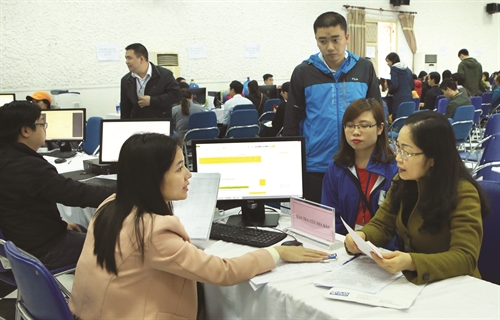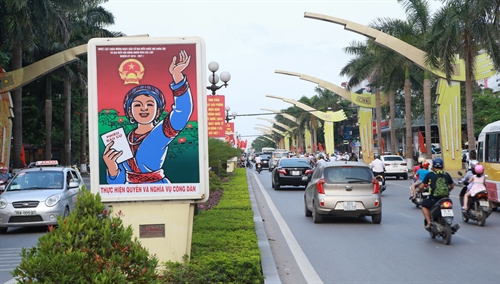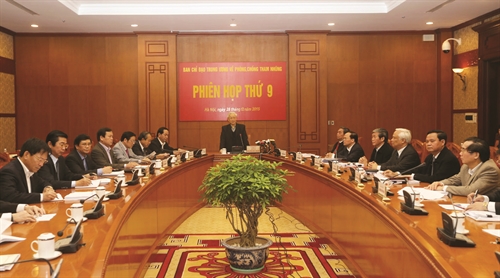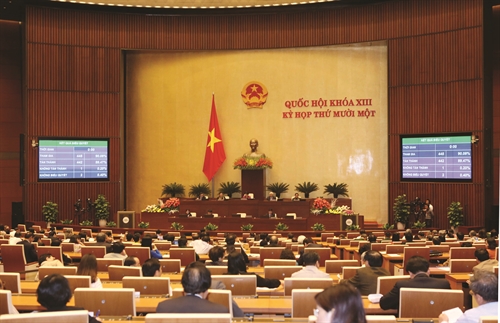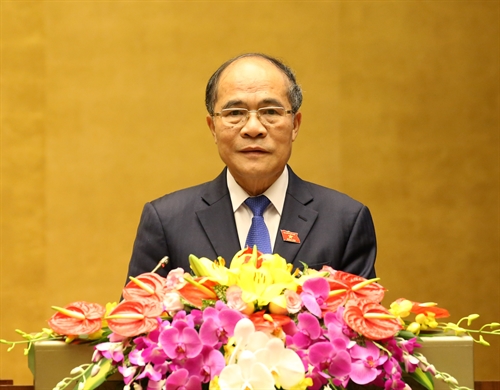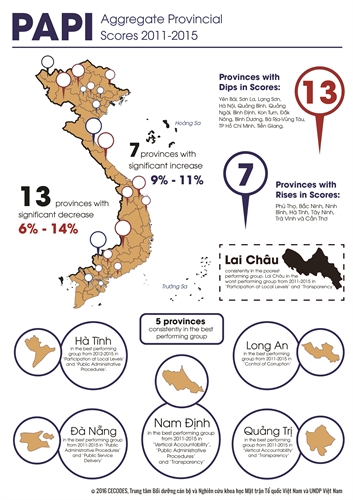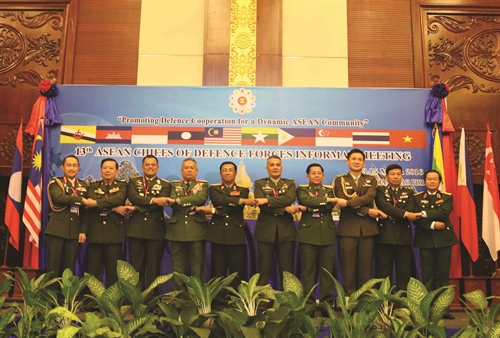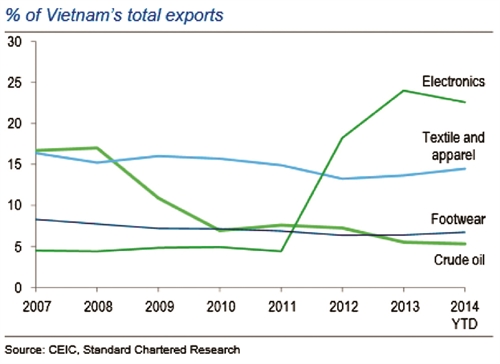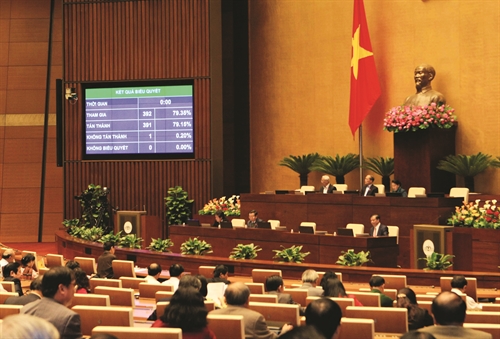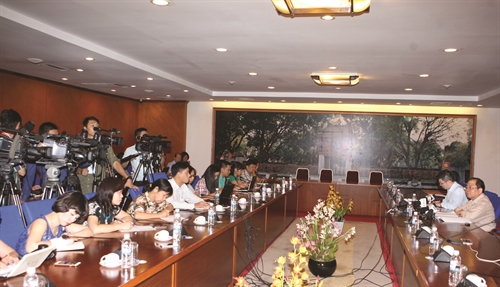The Political Bureau of the Communist Party of Vietnam on April 4 issued Conclusion No. 01-KL/TW on further implementing its Resolution No. 48-NQ/TW on the Strategy for building and completing Vietnam’s legal system through 2010, with orientations toward 2020 (the Strategy). Below are major contents of this Conclusion.
Results of 10-year implementation of the Strategy
The legal system has been increasingly improved with the Party’s line and policies basically institutionalized in time and the Constitution’s provisions on all areas of social life concretized, focusing on the six orientations identified in the Resolution and practically serving the cause of national renewal, construction and defense.
The National Assembly’s legislative activities and organization of implementation of law- and ordinance-making programs have seen progresses, gradually reducing the issuance of ordinances. The process of elaborating legal documents has been greatly renewed, creating positive changes in both document quality and legislative techniques. Documents detailing and guiding the implementation of laws and ordinances have been promulgated in a more timely manner; the supervision, examination and handling of legal documents have achieved initial positive improvements; law dissemination and education and legal aid activities have been carried out more synchronously in diverse forms, thus helping cadres, Party members and the people raise their sense and awareness of respect for and observance of the law.
However, the performance of a number of tasks defined in the Resolution remains slow and imbalanced among different sectors. The legal system is not truly complete and synchronous and its effect and feasibility fails to meet practical requirements. Laws on certain sectors remain unstable, unpredictable and unsatisfactory in quality, and need multiple revisions. The drafting process still involves too many steps, thus causing delays in enactment and enforcement work. Law enforcement is a weakness in the implementation of Resolution No. 48-NQ/TW. The late issuance of detailing and guiding documents remains rather common; review, systemization and codification work has not been strongly deployed; law dissemination and education activities have not seen any breakthroughs. Lawmaking staffs have not yet been strengthened to meet task requirements. The supervision and examination of legal documents have not been carried out regularly; errors and violations have not yet been dealt with in a resolute and strict manner. The legal practice review and juristic research fail to meet reality and state management requirements. The organization of law enforcement remains lax at some times and in some places, resulting in low deterrent and educational effect. The task assignment and coordination among law making and enforcement agencies remain irrational. The people’s participation in law making and implementation supervision has not been promoted yet.
Orientations for the 2016-2020 period
A decade of implementation of the Resolution has attested to the Party’s judicious line and long-term vision. The Political Bureau asks all Party committees and Party organizations to thoroughly grasp and realize the targets, requirements and viewpoints stated in the Resolution, and at the same time, properly and promptly institutionalize the renewal line and policies defined in the documents of the XIIth National Party Congress. Specific tasks include:
* To continue completing the laws on organization and operation of institutions in the political system in line with the 2013 Constitution to meet the requirements for building a law-ruled state of the Socialist Republic of Vietnam in the context of development of the socialist-oriented market economy and deep and wide international integration. To clarify the mechanism of assignment, coordination and power control among state agencies in exercising legislative, executive and judicial powers. To specify the competence and responsibilities between central and local state agencies; to improve regulations on corruption prevention and control as well as on oversight, examination, inspection and audit.
* To further complete the laws on human rights, citizen’s freedoms and democratic rights, and the rights to oversee and examine state agencies’ operation in conformity with the practical conditions of the country. To expand direct democracy and facilitate the people’s participation in the State’s affairs. To increase the combination of the oversight by the National Assembly and examination and supervision by the Party and the Vietnam Fatherland Front, guaranteeing the people’s right to supervise.
* To improve civil and economic laws toward further institutionalizing the property rights of the State, organizations and individuals, and transparentizing obligations and responsibilities in state administrative procedures and public services; laws on development of various types of markets, entry into and withdrawal from markets in the direction of guaranteeing the rights to business freedom; and laws on macroeconomic management tools, including taxes, quality standards and price management, and supportive tools like statistics, and transaction and asset registration. To build and improve laws on planning and special economic zones; create special economic management mechanisms for urban, rural and border and island areas and marine resources; and laws on consumer protection and food safety and hygiene, etc.
* To better the laws on education, training, science, technology, health, culture, information, sports, ethnic groups, population, family, children, gender equity, and social policies, regarding education, science and technology as top national policies; to legislate religion and belief policies, ensuring sound development of all religions and beliefs while preventing the abuse of religions and beliefs to undermine the national unity. To improve regulations on protection and promotion of the values of cultural heritages, the press and publication. To step up socialization of people’s healthcare activities and encourage the development of non-public health establishments; to materialize social equity and ensure social welfare.
* To improve the laws on national defense and security through institutionalizing more profoundly the relationship between socio-economic development and national defense and security potential building and strengthening. To complete legal bases for enhancing the capacity of safeguarding the national independence, sovereignty, unity and territorial integrity. To maintain political stability and social order and safety; effectively prevent and fight crimes and social vices. To strengthen rules, discipline and state management effectiveness in all fields.
* To complete the laws on international integration in line with the principle of protecting the national interests, prioritizing the building of institutions to protect independence and self-reliance in the process of proactive international integration. To attach importance to incorporating into national laws treaties to which Vietnam is a contracting party. To accelerate the conclusion of and accession to multilateral treaties on judicial mutual assistance and resolution of economic, trade and investment disputes.
Tasks and solutions
The tasks and solutions identified in Resolution No. 48-NQ-TW should be further well performed, focusing on the following:
First, to increase the leadership and direction of Party committees and administrations at all levels; to mobilize the active participation of the Vietnam Fatherland Front, socio-economic organizations and their member organizations in lawmaking and law enforcement supervision. To make and improve laws in combination with organization of their implementation; to strengthen law enforcement institutions, ensuring that laws are not only tools for social management but also instruments for people to examine and oversee law enforcement.
Second, to further renew the National Assembly’s legislative activities to make consistent, synchronous and enforceable laws on the basis of institutionalizing the Party’s line and policies and the Constitution’s provisions, following a rational order of priority and conforming with reality. To strictly implement the Government’s and local authorities’ plans on elaboration and promulgation of legal documents. To increase coordination among responsible agencies in the drafting, verification, revision and finalization of legal documents, ensuring schedule, quality and process. To organizationally strengthen judicial and legal agencies and training institutions. To continue improving regulations on court precedents.
Third, to issue in time documents detailing and guiding laws and ordinances; to pay attention to law interpretation work; to intensify the inspection, examination and supervision of law observance; to promptly detect and strictly handle violations of law; to review, systemize and codify legal documents; to intensify the socialization of legal services and judicial support activities; and to substantially renovate contents and methods of law dissemination and education.-
